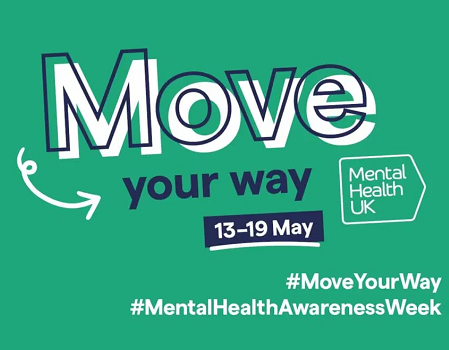Joining the Cause to Tackle Britain’s Epidemic of Poor Mental Health of Young People

Summary
-
Young people are now more likely to experience a common mental disorder (CMD) than any other age group
-
A final report of a three-year research programme funded by the Health Foundation – explores the relationship between young people’s mental health and work outcomes, and how policy makers should respond
-
The rise in mental health problems among young people is not just a health crisis; it is limiting their economic options too
-
Working in collaboration with Psynergy Mental Health we have developed the best tools to enable organisations to understand the dimensions of their organisation’s mental health
-
Using a preventative approach, this software provides significant return-on-investment by identifying key areas of improvement with action plans
Background
A stark 2024 report out by the Resolution Foundation has identified that young people aged 18 to 24-years old are increasingly blaming mental health problems for being jobless, or ‘economically inactive’. The study revealed that a third of young people experienced symptoms of mental illness – such as depression, anxiety or bipolar disorder – in 2021/22, up from a quarter at the turn of the millennium. Two thirds report suffering poor mental health and four in ten list it as the main reason for not working (doubled in the past decade, rising from 93,000 to 190,000).
The shift means people in their early 20s are now more likely to be unemployed due to ill health than those in their early 40s. One of the greatest health challenges we currently face is the increase in the incidence of mental illness in young people. Experts say the ‘worrying trend’ is damaging the economy – with 5 per cent of young adults out of work due to sickness, heaping strain on the benefits system and the NHS.
The Challenge
In today’s fast-paced digital age, where technology permeates every aspect of our lives, it’s crucial to recognise its potential in revolutionising workplace wellbeing. A mental health diagnosis has now become the norm, stopping people taking responsibility for their own lives, according to Frank Furedi of the University of Kent.
The sociology professor said: ‘What used to be known as existential problems of being young – relationship breakdowns, failing, not being part of something – the normal difficulties of making your own way in life have been compartmentalised into mental health issues. We’ve created a mental health crisis by reframing the problems of everyday life into this and this is playing a huge part in UK productivity.
As software engineering experts we are constantly intrigued by the intersection of technology and human welfare, and one area that stands out is to improve the enhancement of mental health and productivity in the UK workplace, hence our collaboration with Psynergy Mental Health.
The Dire Need for Workplace Wellbeing Enhancement
Before diving into the technical aspects, let’s first understand why improving wellbeing in the UK workplace is paramount. According to recent statistics, mental health issues cost UK employers an estimated £45 billion each year, with 70 million workdays lost due to mental health problems, such as stress, anxiety, and depression. These staggering figures not only highlight the personal toll on employees but also the substantial economic impact on businesses.
Moreover, the COVID-19 pandemic has exacerbated these challenges, with remote work blurring the boundaries between personal and professional life, leading to heightened stress levels and burnout among employees. As we navigate through these unprecedented times, it’s imperative to prioritise mental health and create a supportive work environment.
Leveraging Technology for Wellbeing Improvement
Now, let’s delve into the tech aspect of this equation. As tech experts, we have the power to design and implement innovative solutions that can address the root causes of workplace stress and promote mental wellness. One such solution lies in developing robust backend systems that collects anonymised data on various workplace factors, including workload, interpersonal relationships, and job satisfaction. Through sophisticated algorithms, this platform can analyse patterns and identify potential stressors or areas of improvement. For example, it can detect spikes in workload during certain times of the year or identify departments with high turnover rates.
The Role of Data Analytics in Wellbeing Enhancement
Data analytics play a pivotal role in deciphering the complex interplay between work environment and mental health. By leveraging advanced analytics techniques, such as predictive modelling and sentiment analysis, organisations can gain valuable insights into employee behaviour and emotions.
For instance, sentiment analysis algorithms can sift through vast amounts of textual data from survey responses and feedback channels to gauge the overall mood and sentiment within the workplace. This real-time feedback can alert managers to emerging issues and enable them to take proactive measures to address them before they escalate and can provide employees with instant access to mental health resources, such as mindfulness exercises or counseling services, tailored to their specific challenges.
Moreover, by reducing the prevalence of mental health issues and absenteeism, businesses can save costs associated with recruitment, training, and lost productivity. It’s a win-win situation where employees thrive, and organisations thrive.
Why not reach out to us for a demo of the system

Mental Health Awareness Week takes place from Monday 13 – Sunday 19 May 2024. The theme, as set by the Mental Health Foundation, is “Movement: moving for our mental health.” This year, we want you to move your way by finding something that moves your body and mind.
In conclusion, the importance of improving wellbeing in the UK workplace cannot be overstated, especially in today’s challenging times. As tech experts, we have a unique opportunity to leverage our skills and expertise to develop innovative solutions that promote mental health and productivity.
By harnessing the power of data analytics, AI, and ML, we can create a future where employees are not just cogs in the machine but valued members of a supportive and nurturing work environment. Together, let’s pave the way for a brighter and healthier future for the UK workforce.
Find out more about Psynergy Mental Health here



